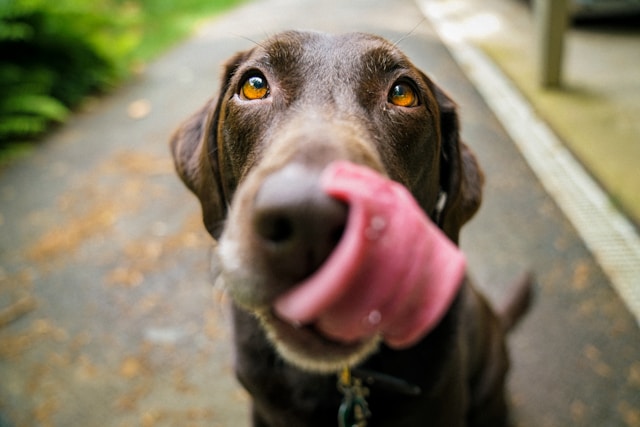Traveling with your dog can be an incredibly rewarding experience, but not all dogs are naturally suited for life on the road. The best travel companions are typically breeds that are adaptable, resilient, and enjoy new experiences. Whether you’re planning a cross-country road trip or international adventure, choosing the right dog breed can make all the difference. This guide will help you discover the best dogs for traveling and provide tips for ensuring a smooth journey for both you and your canine companion.
1. Characteristics of a Great Travel Dog
A. Adaptability
- Flexibility: Travel-friendly dogs adapt well to new environments, changes in routine, and varying schedules. They are generally easygoing and handle unfamiliar situations with ease.
- Socialization: Dogs that are comfortable around different people, animals, and environments are more likely to enjoy and thrive during travel.
B. Size and Practicality
- Compact Size: Smaller dogs or those of medium size are often more convenient for travel, fitting easily in cars, hotel rooms, and public transportation.
- Durability: Travel dogs need to be resilient and physically fit to handle the demands of various travel conditions, including long drives, hiking, and different weather conditions.
C. Temperament
- Calm Nature: Dogs that are calm and relaxed are easier to manage during travel. They are less likely to become anxious or disruptive.
- Playfulness: A playful attitude can make travel more enjoyable, providing opportunities for exercise and bonding during your journey.
2. Top Dog Breeds for Traveling
A. French Bulldog
- Size and Adaptability:
- Compact Build: Their small size and sturdy build make them ideal for traveling in cars and public transport.
- Easygoing Nature: French Bulldogs are known for their adaptable and friendly personalities, making them great companions on the road.
- Travel Considerations:
- Comfort: Due to their brachycephalic nature (short noses), French Bulldogs can be sensitive to extreme temperatures. Ensure they are well-hydrated and avoid exposing them to excessive heat.
B. Beagle
- Size and Adaptability:
- Medium Size: Beagles are a manageable size for travel and enjoy outdoor activities, making them suitable for road trips and hikes.
- Friendly and Curious: Their curiosity and friendly nature make them excellent travel companions who will enjoy exploring new places.
- Travel Considerations:
- Exercise Needs: Beagles require regular exercise, so plan for ample playtime and walks during your travels to keep them happy.
C. Cocker Spaniel
- Size and Adaptability:
- Medium Size: Cocker Spaniels are medium-sized dogs that adapt well to various travel conditions.
- Affectionate Nature: They are affectionate and thrive on human interaction, making them great travel partners.
- Travel Considerations:
- Grooming: Regular grooming is essential to manage their long, flowing coat and prevent matting during travel.
D. Miniature Schnauzer
- Size and Adaptability:
- Compact Size: Miniature Schnauzers are small and sturdy, making them easy to transport and manage.
- Alert and Friendly: Their alertness and friendly demeanor make them great companions on trips.
- Travel Considerations:
- Health Monitoring: Ensure they have regular check-ups and vaccinations before traveling, as their small size makes them more susceptible to changes in environment and weather.
E. Labrador Retriever
- Size and Adaptability:
- Versatile Size: Labradors are medium to large-sized dogs that are very adaptable and handle various travel conditions well.
- Energetic and Social: Their energetic nature and social personality make them excellent travel companions, especially for active families.
- Travel Considerations:
- Exercise Needs: Labradors need ample exercise, so plan for regular walks and activities during your trip to keep them satisfied.
F. Poodle (Miniature and Standard)
- Size and Adaptability:
- Various Sizes: Available in toy, miniature, and standard sizes, Poodles can suit different travel needs and preferences.
- Intelligent and Trainable: Poodles are known for their intelligence and trainability, making them easy to manage and teach new routines during travel.
- Travel Considerations:
- Grooming: Regular grooming is required to keep their curly coats in good condition, especially during extended travel.
G. Boston Terrier
- Size and Adaptability:
- Compact Size: Boston Terriers are small and compact, ideal for travel in various settings.
- Friendly and Adaptable: They are known for their friendly disposition and ability to adapt to different environments.
- Travel Considerations:
- Health Awareness: Like French Bulldogs, Boston Terriers are brachycephalic and can be prone to heatstroke. Ensure they stay cool and hydrated during your travels.
3. Tips for Traveling with Your Dog
A. Preparation and Planning
- Health Check:
- Schedule a vet visit before traveling to ensure your dog is in good health and up-to-date on vaccinations. Obtain a health certificate if required for travel.
- Travel Essentials:
- Pack essential items such as food, water, medications, grooming supplies, and a first aid kit. Familiar items like your dog’s bed or blanket can provide comfort.
B. Accommodations and Travel Arrangements
- Pet-Friendly Accommodations:
- Research and book accommodations that are pet-friendly and provide adequate space and amenities for your dog.
- Travel Safety:
- Use a suitable dog carrier or harness for car travel to ensure your dog’s safety. For air travel, check airline regulations regarding pet carriers and requirements.
C. Comfort and Well-being
- Routine Maintenance:
- Maintain a routine as much as possible to provide stability for your dog. Regular feeding times and familiar activities can help reduce stress.
- Exercise and Play:
- Ensure your dog gets regular exercise and playtime to keep them happy and healthy throughout the trip.
D. Behavioral Considerations
- Training:
- Basic training, such as sit, stay, and come, can be helpful in managing your dog during travel. Practice these commands before your trip.
- Socialization:
- Expose your dog to different environments and situations before traveling to help them adjust more easily to new experiences.
4. Conclusion
Choosing the best dog breed for traveling involves considering factors such as size, temperament, and adaptability. The breeds highlighted in this guide are known for their travel-friendly characteristics, making them ideal companions for various adventures.
By preparing properly and considering your dog’s needs, you can ensure a smooth and enjoyable travel experience for both you and your canine companion. With the right breed and thoughtful planning, traveling with your dog can be a rewarding and memorable experience, strengthening your bond and creating cherished memories along the way.











Leave a Reply